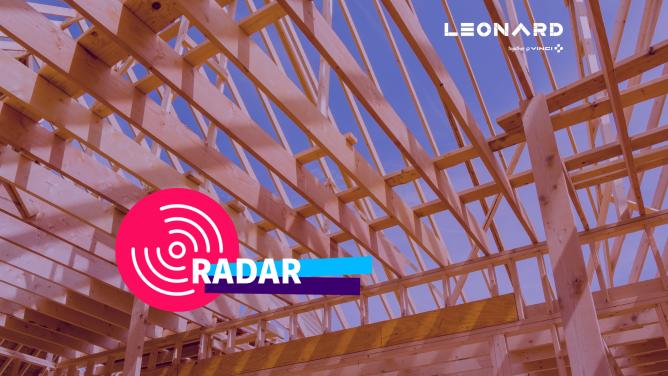BlocPower wants to decarbonize more than 10,000 homes and buildings in Menlo Park by 2030
Homes and businesses are responsible for 13% of total US greenhouse gas emissions, according to Brooklyn-based startup BlocPower. The latter is looking to reduce the country’s carbon footprint by electrifying and decarbonizing buildings, essentially by replacing fossil fuel-based heating and cooling and hot water systems with fully electric appliances and equipment.
Founded in 2014, the company works hand in hand with building owners and local authorities to offer turnkey energy renovation services. And to make this happen, the startup has support from some heavy hitters: in April 2022, BlocPower raised over $100 million, including more than $50 million from Goldman Sachs and $30 million from Microsoft’s Climate Innovation Fund.
Depending on the situation, BlocPower offers electric boilers, solar panels, insulation devices, electric stoves and heat pumps. Once the home owner has chosen their solutions, the company offers financing, usually through a 15-year credit. It then launches a tender for contractors who can carry out the project. The credit covers initial costs – design, materials and labour – as well as routine maintenance on the equipment carried out by BlocPower.
With this device, BlocPower plans to electrify 6,000 buildings in the city of Ithaca, in the State of New York. If the project is successful, it would reduce the city’s annual carbon dioxide emissions by 40%. BlocPower has entered into a similar agreement with the city of Menlo Park, California, where the company will help electrify more than 10,000 homes and buildings by 2030. Up until recently, BlocPower has already electrified more than 1,200 buildings, primarily single-family homes located in low-to-moderate income neighbourhoods, but the company has also worked on offices and places of worship.
Sika invests in a robotics startup capable of creating reinforced concrete structures without using conventional formwork
Swiss chemical giant Sika has just announced an investment in the startup Mesh AG alongside PERI Group, one of the world’s leading formwork and scaffolding manufacturers. This Swiss startup specialising in robotic arms invented the world’s first robot-assisted technology capable of creating reinforced concrete structures without using conventional formwork.
What started out as a research project at ETH Zurich 10 years ago, the startup’s technology has great potential for the additive construction sector. The MESH solution has already proven itself with the construction of DFAB House, a three-storey building in New York. Built by a team of engineers from ETH Zurich from 2017 to 2019, this project proved it’s possible to combine the use of different digital construction technologies and showed the potential of robotics in synergy with 3D printing in the construction sector.
MESH has many advantages, such as offering greater flexibility on construction sites in relation to conventional construction supply chains. Additionally, its robotic arm is capable of manufacturing unique shapes that could provide architects with a much wider range of design options.
All these prospects have caused big names in the industry to take notice: the PERI group has already invested in COBOD, a pioneering company in additive construction, while Sika presented its first concrete printer a year ago.
Suffolk Construction to invest $100 million more in construction tech and proptech startups
Since 2019, Suffolk Technologies has been the armed wing of the American Suffolk Construction in terms of startup investments. The Boston-based fund has already invested in 23 companies operating in the fields of automation and robotics, logistics, environment, fintech and smart buildings. Its goal? To cover the entire building and infrastructure lifecycle.
The startups receiving financing include: Canvas (robotics), Wint (water management), Brunt (protective equipment), DiamondAge (robotics), Felux (marketplace), Procore (software) and OpenSpace (analytics for worksites). Suffolk Technologies also runs Boost, a six-week accelerator programme for startup founders interested in the construction industry. Thanks to its parent company’s numerous projects and industrial partnerships, the fund promises entrepreneurs to help them accelerate the adoption of their technologies.
To further bolster its investments in construction tech, Suffolk Technologies is set to raise an additional $100 million.
There’s more…
French startup Immoblade industrializes its bioclimatic glazing to limit air conditioning
Bill Gates’ Breakthrough Energy fund invests in Terabase, which designs robotic solar farms
WeWork founder launches new proptech startup Flow
Belgian startup Setle raises €1.5 million to make renovations more sustainable and transparent
Start-up Lucid Drone Technologies tackles the industrial cleaning market
Indonesian modular construction start-up Kabina announces a first round of financing


